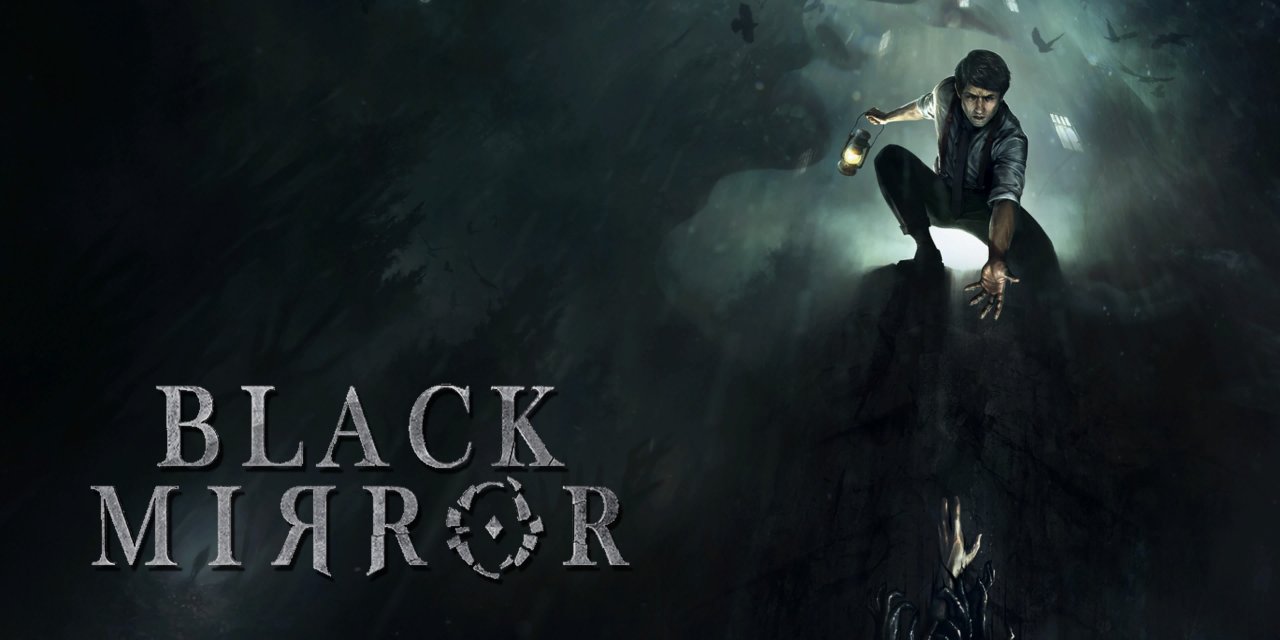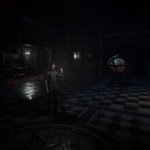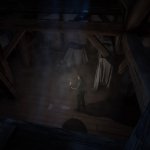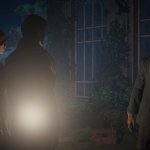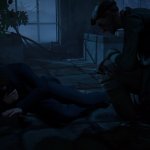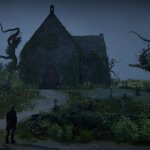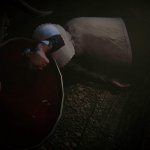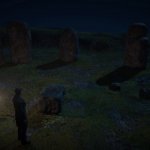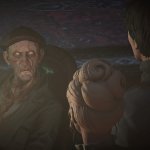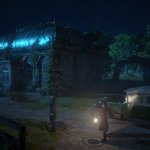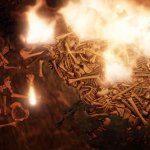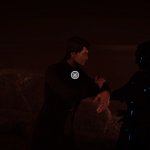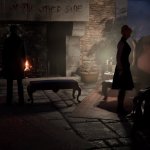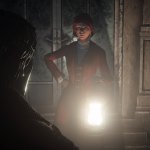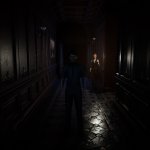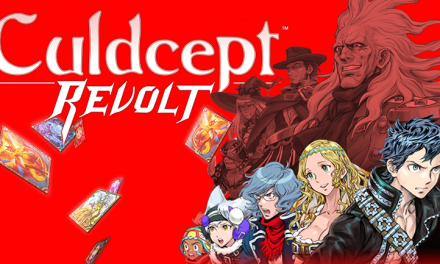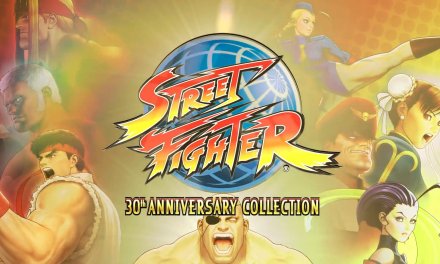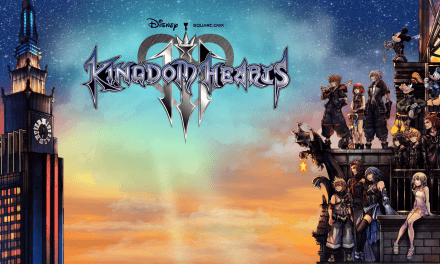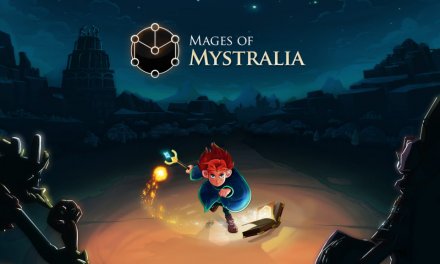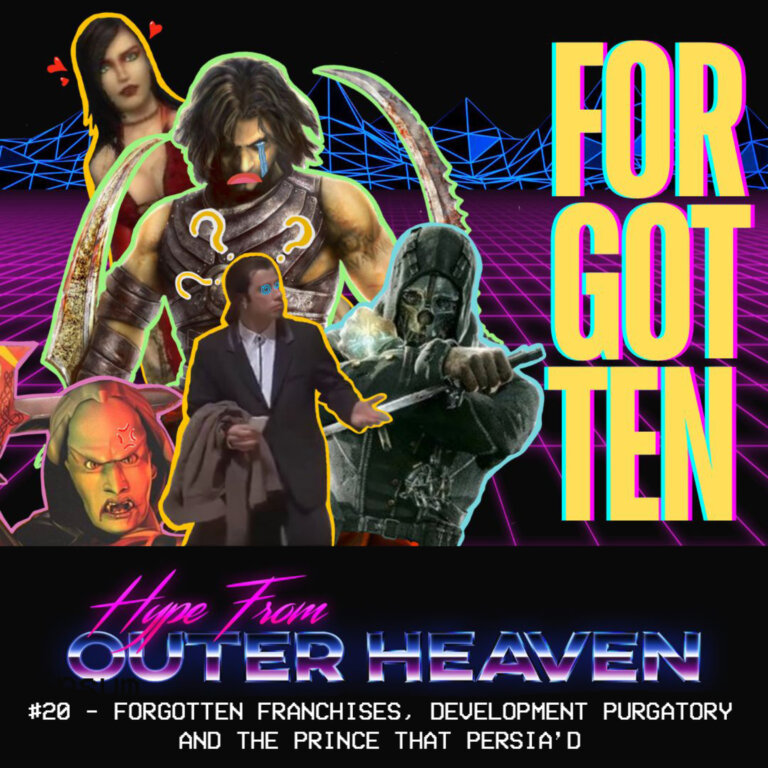“I became insane, with long intervals of horrible sanity.”
Originally released for PC in 2003, The Black Mirror was the start of a trilogy of ‘point-and-click’ adventure titles that were heavily inspired by the fiction and prose of H.P. Lovecraft and Edgar Allan Poe respectively. Initially met with a mixed critical reception, they went on to generate a substantial cult following leading up to the 2017 re-boot of the same name from King Art Games and THQ Nordic. Black Mirror is a direct re-boot to the long running franchise, acting as a modern re-imagining of the tragic tale of the Gordon clan. As usual I’ll be covering the PlayStation 4 version of the game; going over the positives and negatives while ultimately discussing whether the game is worth your time as well as the £34.99 asking price.
With the success of Telltale Games in recent years, it’s pretty safe to say that ‘point-and-click’ adventure games are more popular than ever, going through a nostalgic revival that is not often found in the world of video games. Although simplistic in nature, the genre has also become somewhat of a perfect platform for games that place their narrative at the forefront of the experience, being responsible for some of the best stories found in the medium to date (we all bawled like a little girl at the end of season one of Telltale’s The Walking Dead). Recent popularity aside, the medium has always had a massive following on PC with it being the sole focus of some developers with established cult franchises. One such franchise is The Black Mirror trilogy, which began in 2003 with (the now defunct) Future Game’s The Black Mirror; while the game was initially met with a mixed reception, it went on to gain quite the cult following with the PC crowd, later spawning two sequels as well as last month’s reboot of the same name.
Billed as a “totally independent and new story” King Art Game’s Black Mirror acknowledges its predecessors, but starts fresh with a brand new take on the demise of the Gordon clan, updating the gameplay design and narrative for the current generation. The game is set in the backdrop of 1926 Scotland, set within the ancestral home of the Gordon clan: Sgathan Dubh (Gaelic for Black Mirror). The game places you in the shoes of David Gordon (the heir to the Sgathan Dubh estate) whose motivations for returning home are to investigate the mysterious circumstances surrounding his father’s death. Upon returning home, David is met by a diverse (yet suspicious) cast of characters, who all coldly welcome David back into the fold. David soon realises that the castle and the land surrounding it aren’t what they appear to be, and that an ancient curse haunts the Gordon family going back centuries to when the clan was first established. After some time at Sgathan Dubh, David begins to fall victim to the same ghostly apparitions and visions that drove his father insane, setting up the game’s haunting narrative that lasts anywhere between 5 and 6 hours (longer if you go for all of the collectibles).
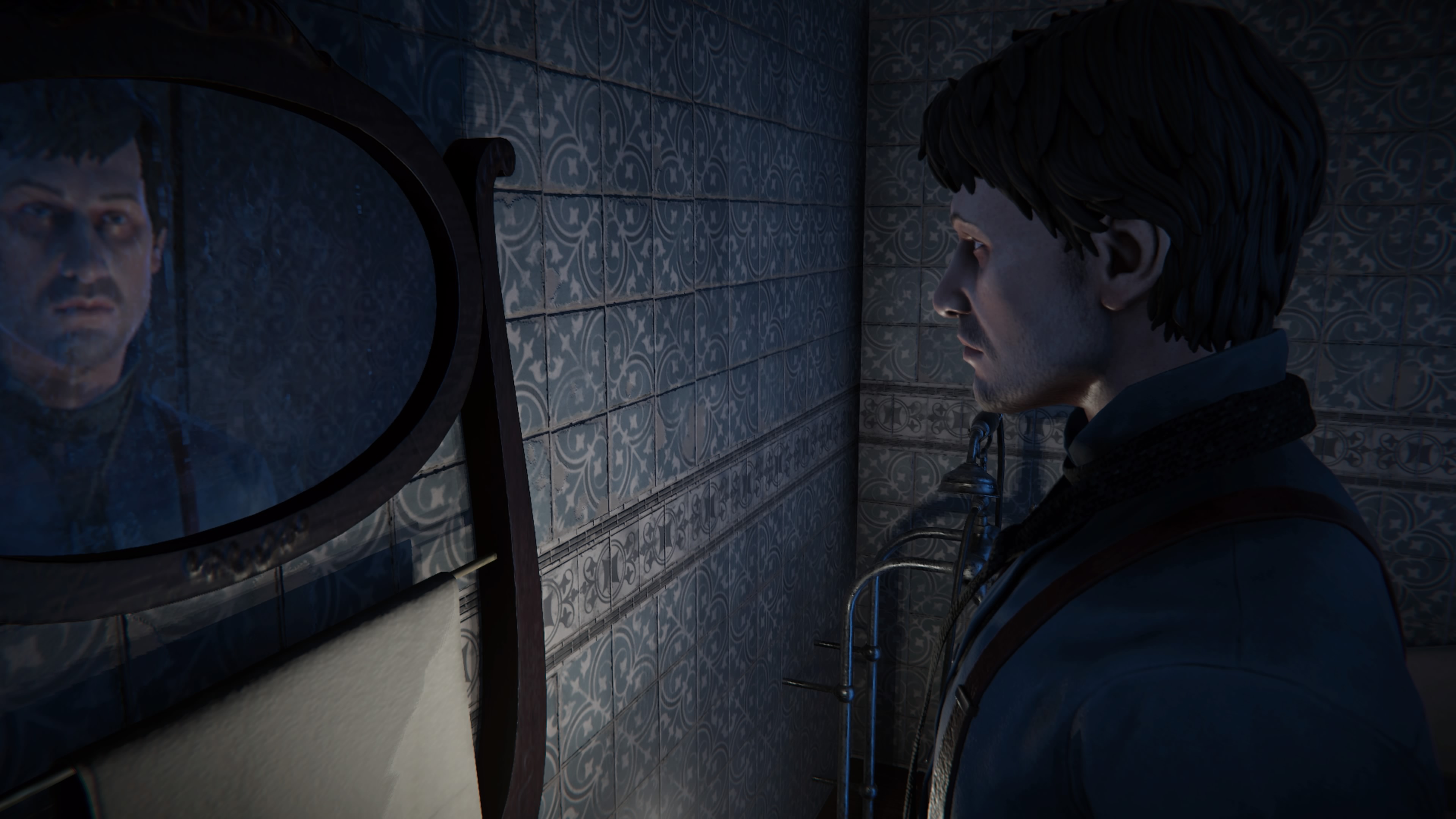
The Black Mirror: David soon begins to question his own sanity upon his arrival at Sgathan Dubh.
While Black Mirror is billed as a horror title, it falls more into the thriller category due to the vast majority of the game playing like an Agatha Christie ‘Who did it?’ murder mystery, making the game somewhat predictable in its narrative direction. However, there is a brilliantly spooky tale at work here, that has a number of plot twists and revelations that keep the story fresh and engaging over the course of its 5-6 hour long narrative. The game’s story is steeped heavily in inspirations from horror Literature, to the point where H.P. Lovecraft and Edgar Allan Poe are directly referenced within the game itself (I’m all for breaking the fourth wall where it’s due) giving the narrative an old school approach to horror, where your own mind is the source of the thing that scares you. Polar to the excellent plot is the more than stellar voice acting, contrasting David’s articulate English vocabulary with the strong, hardy and stoic accents of the estate’s inhabitants; the attention to detail given in voice acting applies another layer of realism to the characters that is seldom found in video games, making the game’s plot all the more grounded in reality. The title also holds a pretty decent soundtrack, which only adds to the game’s already thick atmosphere.
While Black Mirror has a very engaging narrative, the gameplay itself is somewhat less original in its design. The gameplay is a cross between Telltale’s The Walking Dead and Resident Evil; borrowing the plot and character engagement from the former, and the exploration and puzzle solving from the latter. When you finally gain control of David within Sgathan Dubh, you have to explore the mansion with the few clues that you have on hand. As aforementioned, the puzzles play exactly how they would in a Resident Evil title, with a combination of items and documentation giving you just enough information to work the puzzles out for yourself. While it’s sometimes hard for developers to find a decent balance between ridiculously easy and downright hard, Black Mirror succeeds in its puzzle design, offering a decent challenge but nothing that is going to make you want to tear your hair out. At any point during the game’s chapters, characters can be interacted with, giving you a number of questions that may or may not reveal clues regarding the game’s puzzles or overarching murder mystery; while the voice acting is solid, the same can’t be said for the facial animations, as the characters have the ability to express emotion in their dialogue as much as a damp dish rag does, taking away from the immersion somewhat.
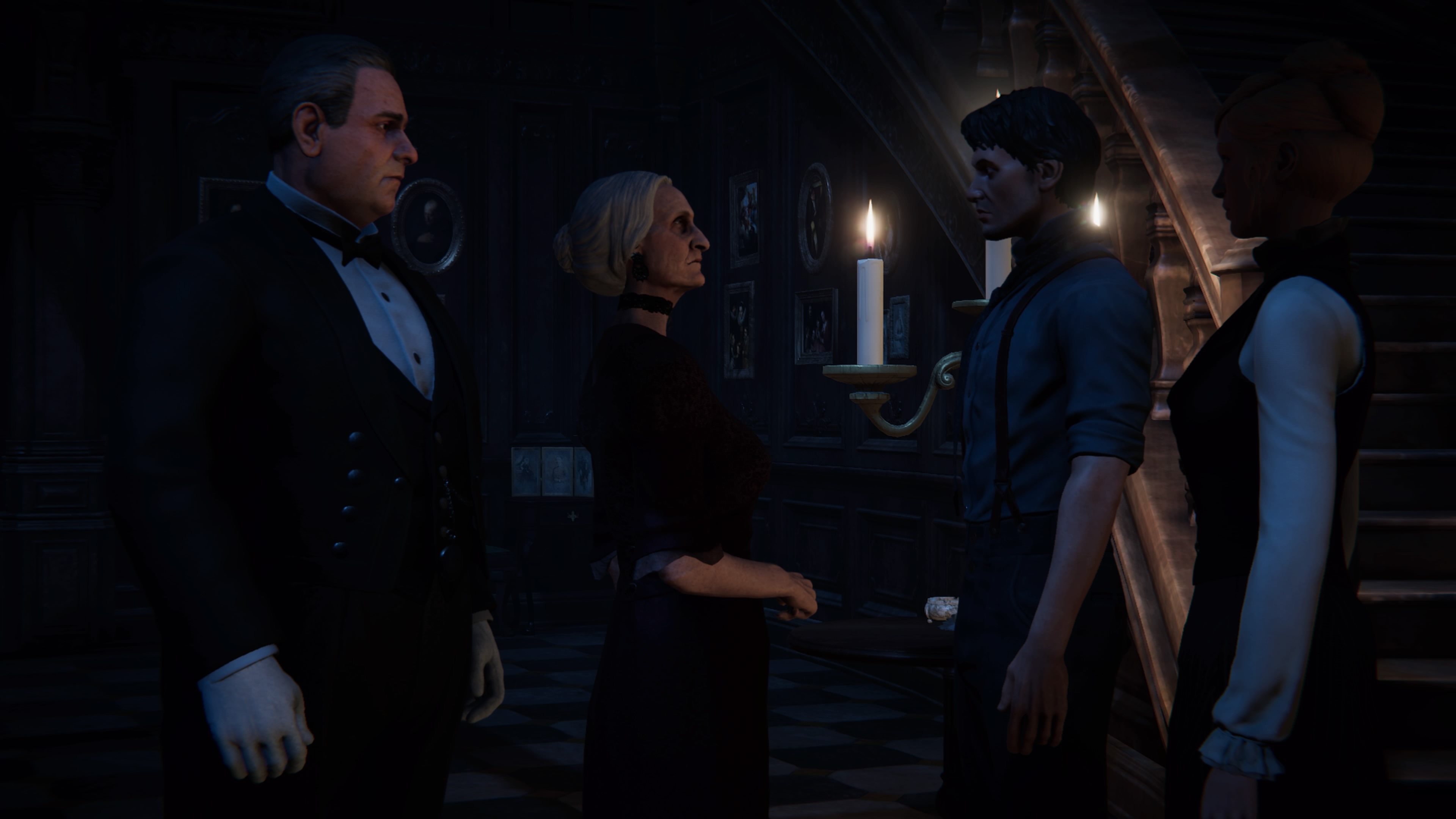
The character’s of Black Mirror are brought alive by a solid cast of voice actors.
While the story and gameplay found in Black Mirror are great within their own right, there are a number of factors that bring the overall experience down. The game sports a 2160p resolution on the PS4 Pro but suffers somewhat with its frame rate, with it jumping as high as 60fps in some areas and going down into the low 20’s in others, making me think that the game would have benefitted being locked down at 30fps rather than it’s uncapped frame rate. The game is also alive with bugs, affecting both the graphical presentation and the gameplay; as the game is very dark in points, the pixels on screen almost appear to be tearing away from themselves, allowing some white pixels to bleed through. Possibly the worst of the bunch however are the game’s loading times, which occur every time that you enter a new area and can last anywhere up to 30 seconds in some instances. While the game was undoubtedly built on a small budget, the type of bugs that are present could give one the idea that the development of the game was somewhat sloppy in its later stages, with the developers leaving many of the games bugs in the final release only to be ironed out later once the title had turned a profit.
Overall I enjoyed the time that I spent with Black Mirror; the game has a genuinely haunting story that draws inspiration from some of horror’s literary greats; couple this with a tried and tested gameplay formula and you have a great recipe for one creepy little game, which is a shame due to it being let down significantly by issues that should have been ironed out before the full release.

